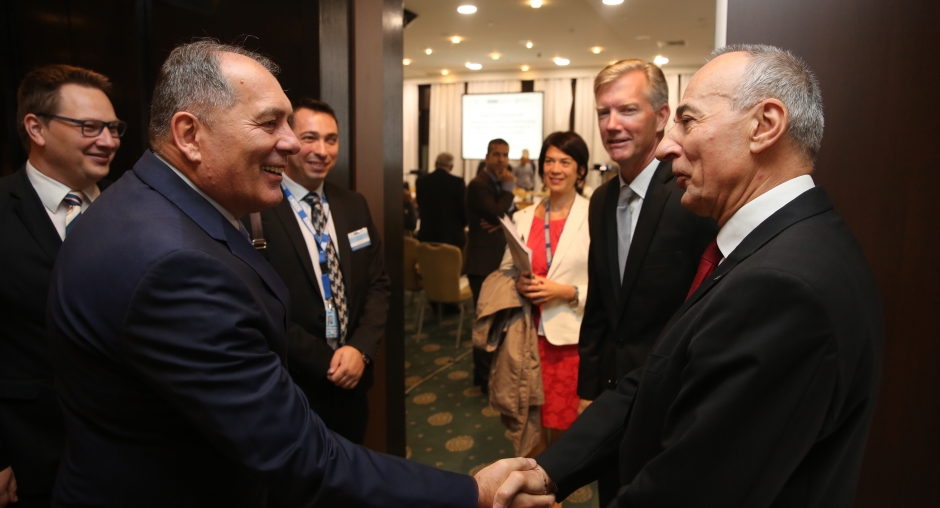Hotline: +381 61 63 84 071
Representative of NGO Atina participated at the Regional Seminar on “Moving Forward in Addressing Migration – related Crimes in South-Eastern Europe”

Regional Seminar on “Moving Forward in Addressing Migration – related Crimes in South-Eastern Europe”
During the month of September, a joint IOM-OSCE-UNODC Regional Seminar entitled “Moving Forward in Addressing Migration – related Crimes in South-Eastern Europe” took place in Sarajevo with the aim to strengthen cooperation between criminal justice authorities and relevant public and private actors, in order to address irregular migration-related crimes in South-Eastern Europe, with a particular focus on prevention, prosecution, international and cross-border cooperation and assistance to victims. The objective of this seminar was to identify gaps, challenges and good practices, as well as to strengthen information-sharing networks between countries of origin, transit, and destination using a multidisciplinary approach.
The target audience of this meeting were senior experts and practitioners from relevant bodies of the criminal justice system (judges, prosecutors, law enforcement officers, police liaison officers), central authorities and non-governmental organizations dealing with migration and cases of trafficking in human beings and smuggling of migrants from participating States and Partners for Cooperation, as well as those from OSCE field operations and relevant international organizations.
As part of the consortium organizing the event, IOM hosted a discussion session Understanding migrant vulnerabilities and capacities: a framework for analysis and programming which fed into the main topic of the regional seminar through keynote speakers, Zorana Parezanovic, representative of NGO Atina, and Peter Van der Auweraert, IOM Sub-Regional Coordinator for the Western Balkans.
Atina’s work has been presented as an example of good practice in the provision of support to the most vulnerable refugees and migrants, with an extensive expertise in prevention, identification, creation, and implementation of the programs with the aim to provide direct assistance to the persons from this population who have experienced different forms of violence, abuse and exploitation, with a focus on GBV and HT. Zorana Parezanovic, representative of NGO Atina, has during her speech emphasized the importance of the presence of sensitized actors who are trained to identify and adequately respond to cases of human trafficking, gender-based violence, and all forms of exploitation.
Peter Van der Auweraert, IOM Sub-Regional Coordinator for the Western Balkans, said that there is no lack of political will or legal provisions for the protection for migrants. “The gap is in implementation,” he said. “Increasing governments’ and civil society’s capacity to identify and assist migrants in vulnerable situations, based on individual vulnerability assessments, should be further fostered.”
The discussions resulted in concrete proposals for enhanced international and cross-border cooperation concerning irregular migration-related crimes in South-Eastern Europe, involving criminal justice and migration practitioners, as well as other relevant stakeholders from the public and private sector. The outcomes will be used as a guiding instrument for States and regional organizations to continue discussions on this topic.
Findings and outcomes from this conference could be found below.












 FACEBOOK
FACEBOOK TWITTER
TWITTER YOUTUBE
YOUTUBE